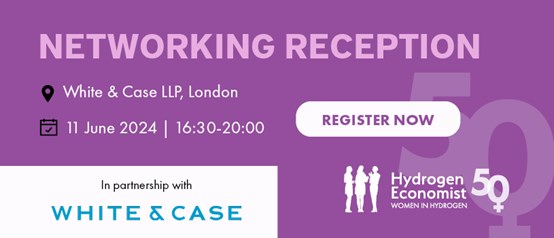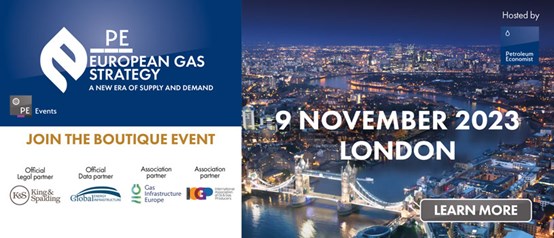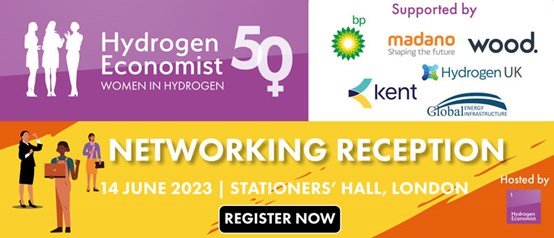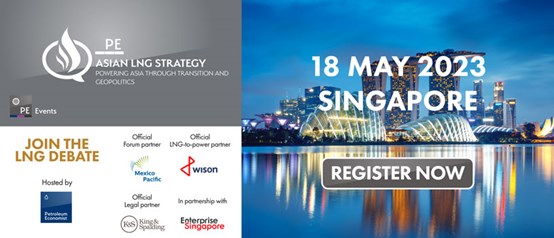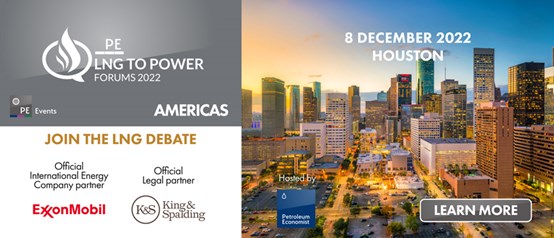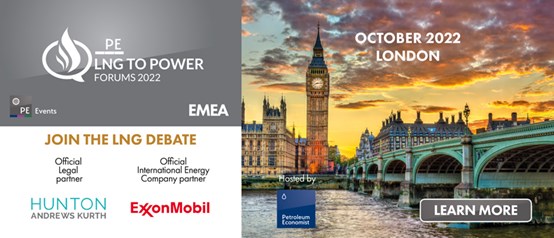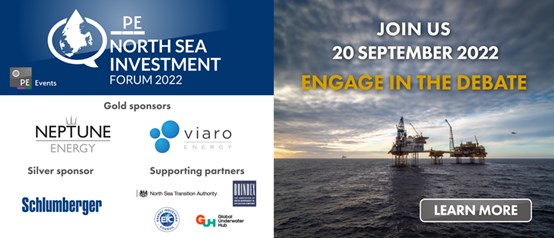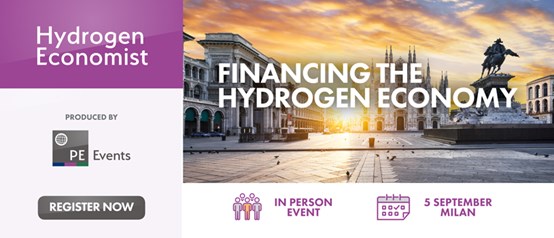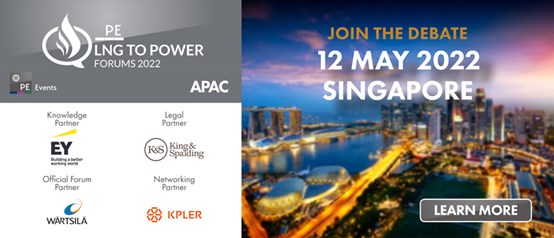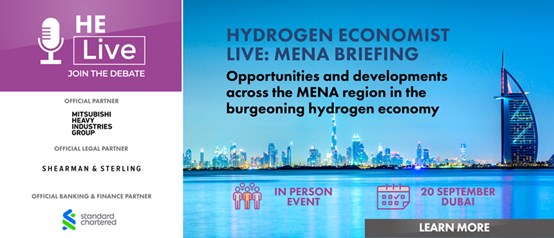Energy Evolution: Pioneering Sustainable Gas Solutions
The Middle East is undergoing a shift from oil to natural gas as part of a changing domestic energy mix. This one-day conference will explore the strategies required to develop upstream gas and build out vital midstream gas infrastructure and discuss the economics of investing in gas and raising capital for domestic gas projects. Join 150+ regional gas stakeholders to understand the policy, partnerships and production required to evolve the Middle East’s energy mix and pioneer sustainable gas solutions.
Gulf Energy Information, the world’s largest independent media company serving the energy industry, is the proud host of the Gulf Energy Information Excellence Awards to recognize and celebrate cutting-edge technological developments and exceptional leadership in the industry.
This black-tie gala will bring together hundreds of upstream, midstream, and downstream innovators and industry leaders at the luxurious Post Oak Hotel in Houston, Texas, on Thursday, October 16, 2025. This exclusive event features networking opportunities, entertainment, and recognition of the top performers in the industry, combining the respected World Oil Awards, Hydrocarbon Processing Awards, Petroleum Economist Awards and Pipeline & Gas Journal Awards into a SINGLE black tie affair!
The awards will honor the best of the best in the industry, recognizing innovation and technological advancements across each market segment. Be a part of the celebration of excellence in the international energy market and join us at the Gulf Energy Information Excellence Awards. For submission tips and category descriptions, download the Nomination Kit and submit your nominations by July 15! https://e2awards.com
As hydrogen starts to gain a foothold in the energy transition, there is a need for women’s voices and the diversity within this industry to be highlighted. Hydrogen Economist occupies a unique position in the global energy industry to provide a platform and a voice to under-represented, under-promoted and under-recognised women.
Women in Hydrogen 50, published by Hydrogen Economist, is a list which profiles 50 influential and boundary-pushing women in this growing sector. Inclusion in the list follows a process of industry nominations and advisory board input, with the final decision made by our editorial team.
Women in Hydrogen 50 encompasses five distinct categories across the hydrogen economy:
- Projects and Partnerships
- Technology and Innovation
- Policy and Regulation
- Industrial Use and Switching
- Rising Stars
Want to join us to celebrate the Women in Hydrogen 50? We are delighted to host a networking reception in London on 11 June - click below to learn more!
Petroleum Economist presents a unique event bringing together the industry’s leading decision makers to share their insight and intelligence on the short and long term trends for the European gas market. After a turbulent year, what will winter 2023 bring? And what is the outlook for 2024 onwards? What are the implications for the region’s 2030 energy transition targets? Join Europe’s key industry stakeholders to discuss in depth the future of the European gas market.
Key focus areas
- Europe’s New Dawn: from regional market to global player
- Gas security: same but different — mitigating the risks second time around
- What pipelines are in the pipeline?
Who should attend?
- Energy companies
- Buyers
- Sellers
- Traders
- Infrastructure
- Finance & investment
- And more...
As hydrogen starts to gain a foothold in the energy transition, there is a need for women’s voices and the diversity within this industry to be highlighted. Hydrogen Economist occupies a unique position in the global energy industry to provide a platform and a voice to under-represented, under-promoted and under-recognised women.
Women in Hydrogen 50, published by Hydrogen Economist, is a list which profiles 50 influential and boundary-pushing women in this growing sector. Inclusion in the list follows a process of industry nominations and advisory board input, with the final decision made by our editorial team.
Women in Hydrogen 50 encompasses five distinct categories across the hydrogen economy:
- Projects and Partnerships
- Technology and Innovation
- Policy and Regulation
- Industrial Use and Switching
- Rising Stars
Want to join us to celebrate the Women in Hydrogen 50? We are delighted to host a networking reception in London on 14th June - click below to learn more!
The Asia Pacific region’s gas market is on a knife-edge. This inaugural event welcomes senior decision makers in examining the costs, balancing the risks and seizing opportunities as APAC navigates the push towards cleaner energy and the pull for secure supplies. This boutique event is the perfect occasion to join your peers for a day of discussion, debate, thought leadership, and exclusive networking as Russian supply, China’s demand and net zero targets come into focus.
The role of US LNG in the global market has changed significantly in recent months, and will continue to evolve, owing to the Russian invasion of Ukraine exacerbating Europe’s existing gas challenges. This offers new opportunities to US exporters with existing and in-development projects seeing a flurry of contracts signed—not just with European or portfolio players. Asian buyers wanting to secure North American supply in a tightening global market are also taking the plunge. The US’ role as global gas security champion may offer a unique geopolitical opportunity, but it is not universally popular. Industry is concerned with the impact of exports on a rising Henry Hub price, while the environmental lobby does not want US or receiving countries to lock themselves into decades-long fossil fuel infrastructure. And, while short-term prospects look good, the long-term prospects for LNG demand remain subject to the uncertainty of the role of unconstrained gas in a lower-carbon world. So, the traditional financing and contractual challenges remain, while CCS, both for liquefaction plants and gas-fired combustion, and carbon-offset LNG cargoes are emerging questions. In 2022, we are expanding the LNG to Power North America discussion to explicitly include Central and South America. We will explore the variety of LNG-to-power projects that are being developed to move away from oil-fired generation or reduce dependence on hydropower, as well as to partner ambitious wind and solar targets. But high and volatile prices in the global LNG market reduce the attractiveness of the fuel even if promises emissions benefits. The economic and political threats to shifting towards gas at a time of global scarcity will also come under the microscope.
Europe’s ambition to displace two-thirds of its of Russian gas demand by the end of 2022 and eliminate its dependence well before 2030 is a game-changer for European LNG and for the continent’s gas-fired power sector. But it also ripples inexorably towards Africa, the Mena region and the rest of the world.
In the short-term, European demand for LNG imports is set to spike, with existing terminal at high utilization rates and a rush to fast-track new temporary and permanent regasification capacity. But there is also greater impetus to reduce Europe’s gas demand, including in its power sector, much more swiftly than previously planned.
For Mena’s gas producers, Europe’s needs present an opportunity, not just for traditional heavyweight Qatar, but also countries like the UAE and Egypt that want to boost exports or Saudi Arabia and Iraq that seek to enter the game. Algeria faces a pipeline-or-LNG choice; there is a premium on Libya to achieve the requisite stability to exploit its gas potential, and the East Med continues to wrestle with how best to match its resources with the extra-regional demand opportunity.
Sub-Saharan Africa’s existing and potential LNG exporters should also be looking at a rosier short-to-medium-term future. But for energy-starved importers, the situation is bleaker. Lack of affordable gas and LNG make stall any African dash-for-gas, with environmental, social and economic impacts.
Join us for the 4th annual LNG to Power Forum EMEA in London!
The UK North Sea M&A market emerged strongly from its pandemic lull, but there are more deals to be done assuming challenges can be overcome. Certain actors are still eyeing the exit and portfolios could benefit from further optimisation.
But finding buyers for every asset, particularly those with a higher carbon footprint, could pose issues. And depressed European investment appetite for oil and gas continues to challenge IPOs, exit routes for private equity firms and the enthusiasm of listed actors for major acquisitions.
Petroleum Economist has been closely tracking the changing North Sea M&A landscape for several years, speaking to the major players and analysing not just the completed deals but also those firms in the market to buy and sell. Our North Sea Investment Forum will build on the relationship we have built up in both the operator and financial communities, bringing together an unrivalled arena for dissecting the key trends and narratives in this most dynamic of marketplaces.
Hydrogen Economist will host a half day event in Milan focusing on the challenges and opportunities in financing the hydrogen economy.
The agenda offers interactive panel discussions exploring making commercial hydrogen projects bankable; what lessons can be learned from LNG and renewables; and an analysis of M&A activity & collaboration.
Join us to discuss and debate the future of the hydrogen economy and how the industry must work together to deliver on the local and regional strategies & policies in place to enable the realisation of this vital element of the energy transition.
Petroleum Economist will host the 2nd edition of LNG to Power APAC in Singapore in May 2022.
Join us in person to enjoy extended networking sessions with your peers and engage with high level panel discussions covering topics including:
- Can the region go straight from coal to renewables, by-passing gas/LNG?
- Will LNG-to-power demand growth by threatened by supply security concerns in the largest potential markets?
- Can the LNG fleet respond sufficiently quickly to the sort of supply and demand growth numbers forecast, especially as most of this growth is relatively long-haul?
Petroleum Economist will host the 3rd edition of LNG to Power North America in Houston on 6 December 2021.
Join us in person on 6 December 2021 to enjoy extended networking sessions with your peers and engage with high level panel discussions covering topics including:
- Pacific Coast vs Atlantic Coast economics
- Associated gas availability if shale producers chase value over volume and how that might impact feed gas costs
- Trading & Pricing
- Green LNG
- Investor appetite
Petroleum Economist will host the 3rd edition of LNG to Power EMEA in London on 12 October 2021.
Join us in person to enjoy extended networking sessions with your peers, and engage with high level panel discussions covering topics including:
• How does the role of gas-fired power change as both coal and nuclear retirements and renewables penetration accelerate?
• Does Europe need more long-term LNG for its power sector as domestic supply flexibility reduces?
• The EU’s big east/west gas divide
• Gas- and LNG-to-power's role in the energy mix as vital to the electrification of Africa
Hydrogen Economist hosted a half day briefing in Dubai focusing on the opportunities and developments across the MENA region in the burgeoning hydrogen economy. Extended networking sessions offered a chance to meet contacts and peers old and new, and high level panel discussions offered engaging and insightful content.
With thanks to our sponsors:
Official Partner: Mitsubishi Heavy Industries
Official Legal Partner: Shearman & Sterling
Official Banking & Finance Partner: Standard Chartered Bank
Venue: Sheraton Grand Hotel, Dubai, 8am-1pm, Monday 20 September
Alternative fuels—any fuel that is not derived from conventional fossil fuels—will play a key role in the energy transition as more and more countries commit to decarbonisation and net-zero targets. Transition Economist, in association with professional services firm PwC, is pleased to present an exclusive roundtable exploring the role of alternative fuels and the pathways to commercial viability.
A significant investment in alternative fuels is needed to achieve the goals set out in the Paris Agreement, and this topic will undoubtedly play a part in discussions at this year’s Cop26 meeting in November.
Join our select panel for an in-depth discussion on topics including:
• What are the realistic alternative fuel options, and where can they best be applied?
• What fuel mixes and technologies will be most cost-effective for achieving the goals of the Paris Agreement?
• Financing the transition - key finance providers and how to scale the technologies needed
• International collaboration is key. What support is needed to achieve a cost-competitive hydrogen value chain?
This discussion is moderated by Will Jackson-Moore, Global Private Equity, Real Assets and Sovereign Funds Leader, PwC.
Panellists: Juergen Peterseim, Senior Manager, PwC
Helena Anderson, Co-Founder and COO, Ikigai Capital
Shiva Dustdar, Head of Division, Innovation Finance Advisory, European Investment Bank
Matt Williamson, VP Blue Hydrogen, bp
Chris Johnson, CEO, HyCap





